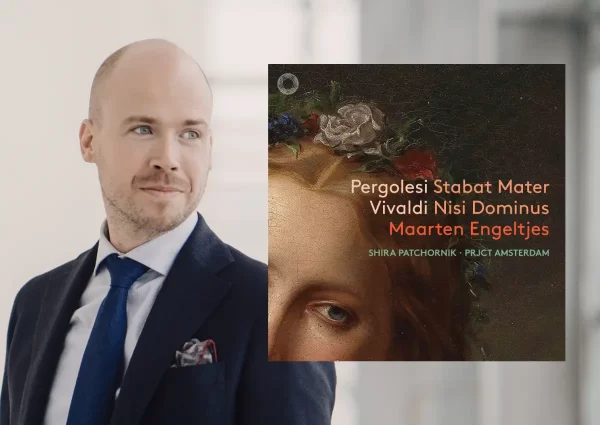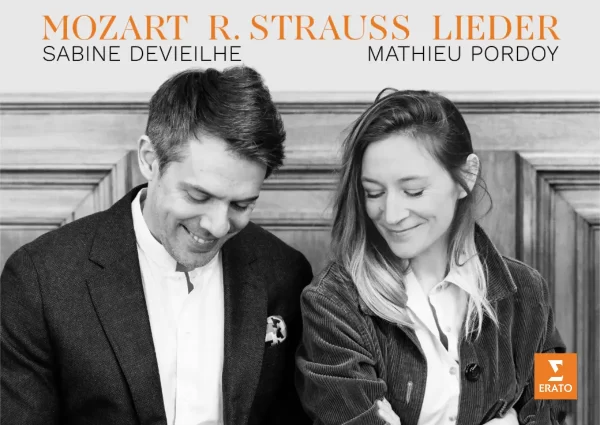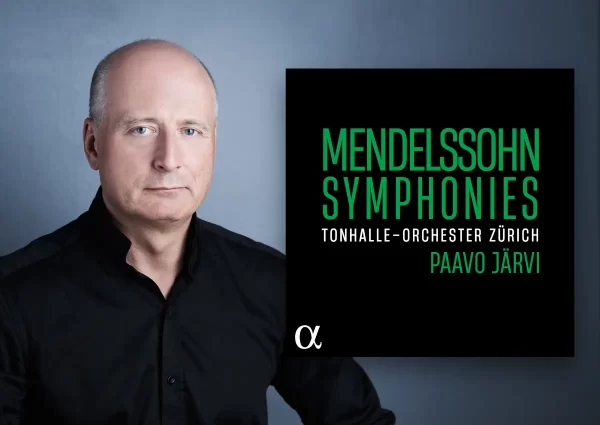In light of Lars Vogt’s established familiarity with Brahms and Schumann, his newest release of works by Leoš Janáček may come as a surprise. As he describes, though, his earliest encounters with the composer’s chamber works have long left an intriguing path for him to explore.
In the Mists (1912) came out of a difficult time in Janáček’s life. A pervading concept in the cycle is that of solitary wandering which the pianist’s performance of Andante (track 3) grasps in its narrative. The right hand’s yearning, elegiac melody asks for answers while a well-phrased echo in the left hand seems to offer, at least momentarily, a soothing response. The chime-like melody at 1:09 is an effective bridge into the next part of the journey, where Vogt’s effervescent cascades lead to an impassioned restatement of this theme. He brings out momentary hope in the major sections, before the same cascades bring us back to a more melancholy place.
An uncertainty creeps into the Molto Adagio (track 2): the languorous D-flat major theme is revisited several times, its peace is interrupted a contrapuntal Beethovian fury (albeit more dissonant and atonal) and touches of an otherworldly, Debuassian ephemerality. What Vogt expresses well is the stop-and-go element that underlies the piece’s constant shifts. Perhaps a matter of personal taste, but I did find the recurring theme a little too forward, and with some unevenness in the top voice. Its initial entrance, for instance, would be more evocative if it seemed to materialize from afar.
Related Classical Music Reviews
- Review: Janáček – The Cunning Little Vixen, Sinfonietta – London Symphony Orchestra, Rattle
- Review: Brahms – Piano Concerto No. 2, Handel Variations – Lars Vogt
- Review: Mozart – Piano Sonatas – Lars Vogt (2019)
Janáček’s only extant piano sonata, 1.X.1905, commemorates the death of a Czech carpenter during a public demonstration. One of Janacke’s defining piano works, it explores mortality from multiple perspectives. In Foreboding (track 1), sadness, defiance, and reminiscence all make their appearances. Overall, the pianist’s conviction is evident but especially in the climactic moments (if not for a few too harshly accented notes). He does seem to favor the middle and lower registers often, as their power drives the movement’s drama. What we want to hear more, though, are the upper melodies in the more gentle sections – they are crucial in bringing out the work’s tragedy.
Death (track 2) fares better. The dotted rhythm motif and short, almost curt phrases reflect upon the finality of mortality. What Vogt does quite nicely is create a consistent connection between these phrases. This eventually brings the movement to its peak, which draws upon the anguish and tension in Foreboding. He has many gradations of piano and manages a better, more refined relationship between different textures. The final few seconds of the work perhaps represent the inevitability of Death most effectively: the pianist treats the meandering harmonies like fleeting yet briefly illuminated musings that are quietly and permanently extinguished.
Janáček originally conceived On an Overgrown Path as a series of five pieces for harmonium. Written at the turn of the century, its composition spans roughly a decade and explores the composer’s connection to his Slavic roots (the cycle’s title, in fact, is derived from the words of a Moravian wedding song). Though many of the works last little more than a few minutes, they are descriptive vignettes with a similar penchant for quick character changes heard in his other works. A good example is Book 1’s A Blown-Away Leaf (track 8): the lovely playing portrays the quirky movements of the leaf buoyed by a playful, temperamental wind.
A noticeable difference in Book 2 is the replacement of descriptive titles with tempo markings. Works like the Allegro (track 17) add an abstract musicality to the programmatic elements. The opening surely resembles the clangs of a dulcimer, but the mix of dissonances against the melody infuses the work with enigma. Vogt does some skillful work with the pedal, catching just enough of the residual resonances to create a nebulous effect.
The sound engineering is solid, capturing many of the small details in Vogt’s playing. As for the liner notes, they have a defining feature of some of his previous albums: a conversation about the composer which gives us added perspective. Despite small reservations, the sincerity in Vogt’s performance makes this more than worthy listen.

Janáček – Piano Sonata 1.X.1905, “In the Mists, “On an Overgrown Path”
Lars Vogt – Piano
Ondine, CD ODE1382-2
Janáček Piano Music – Recommended Comparisons
Read more classical music reviews or visit The Classic Review Amazon store
Follow Us and Comment:
Get our periodic classical music newsletter with our recent reviews, news and beginners guides.
We respect your privacy.








